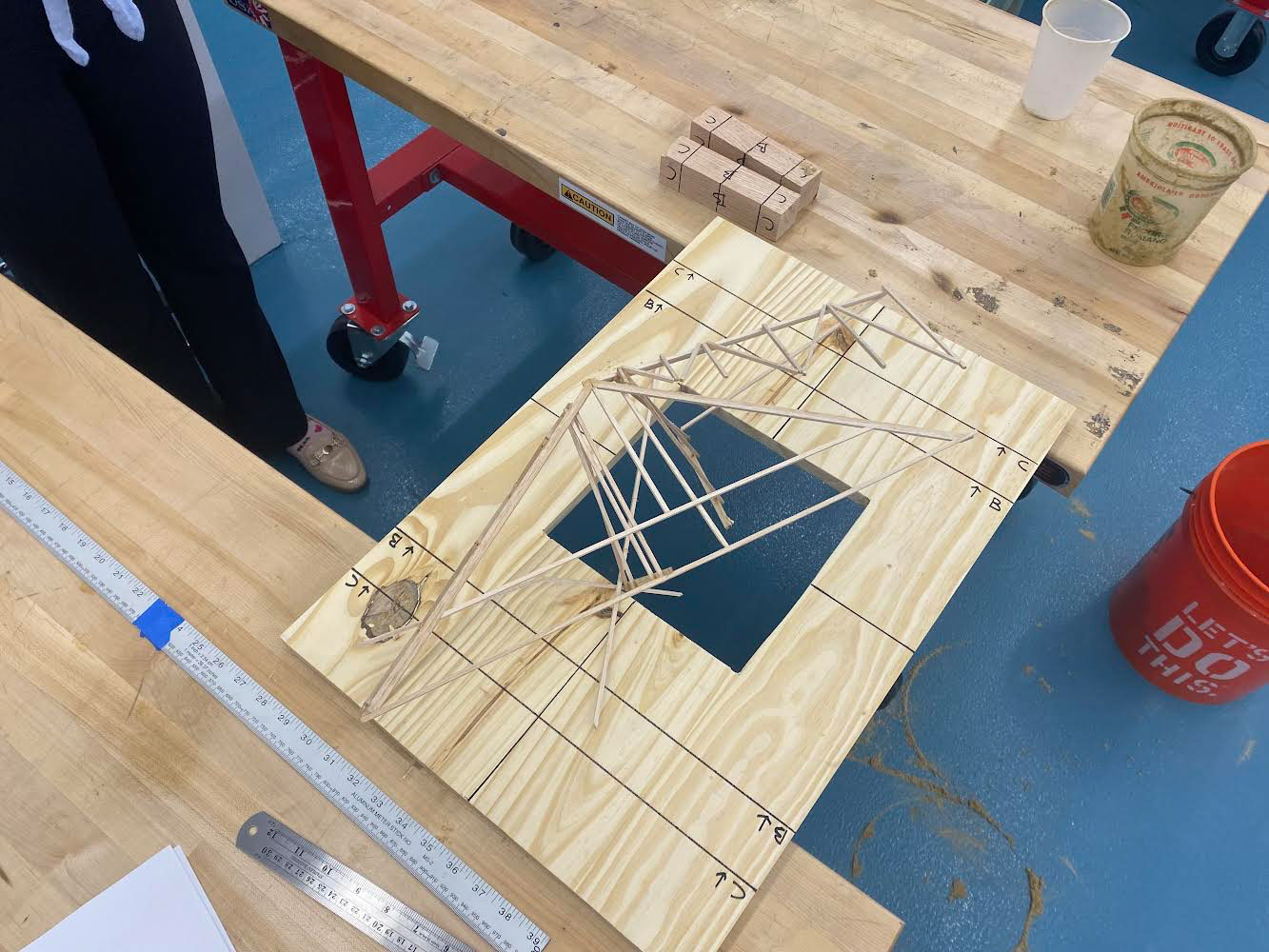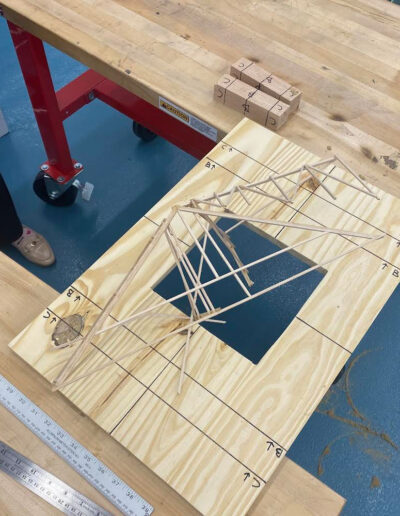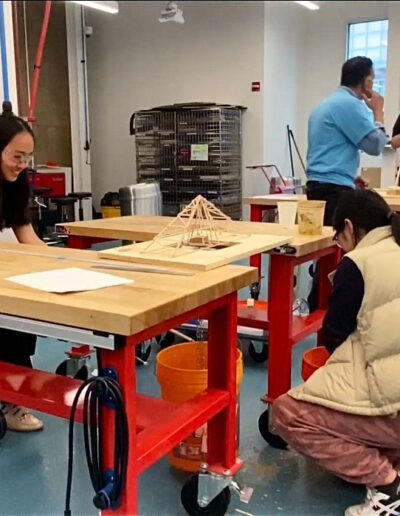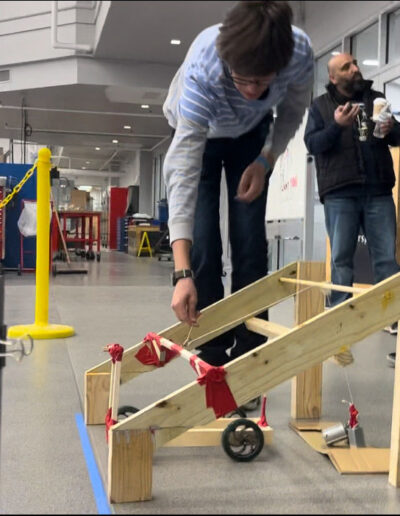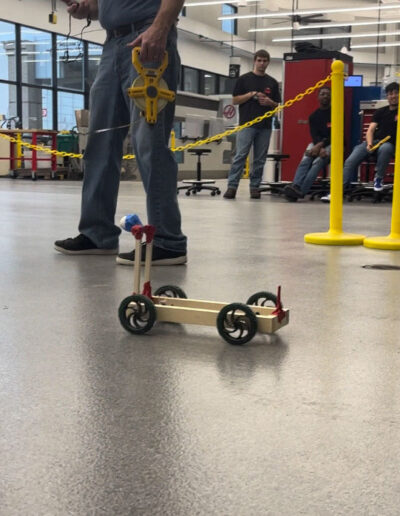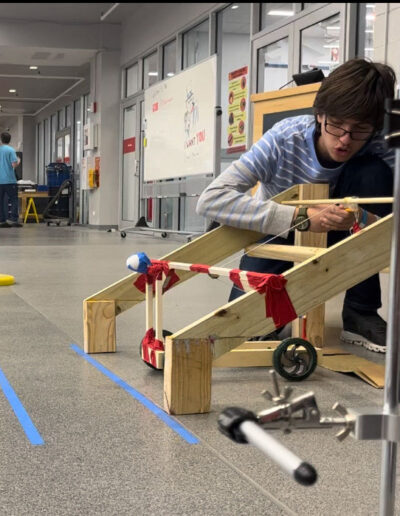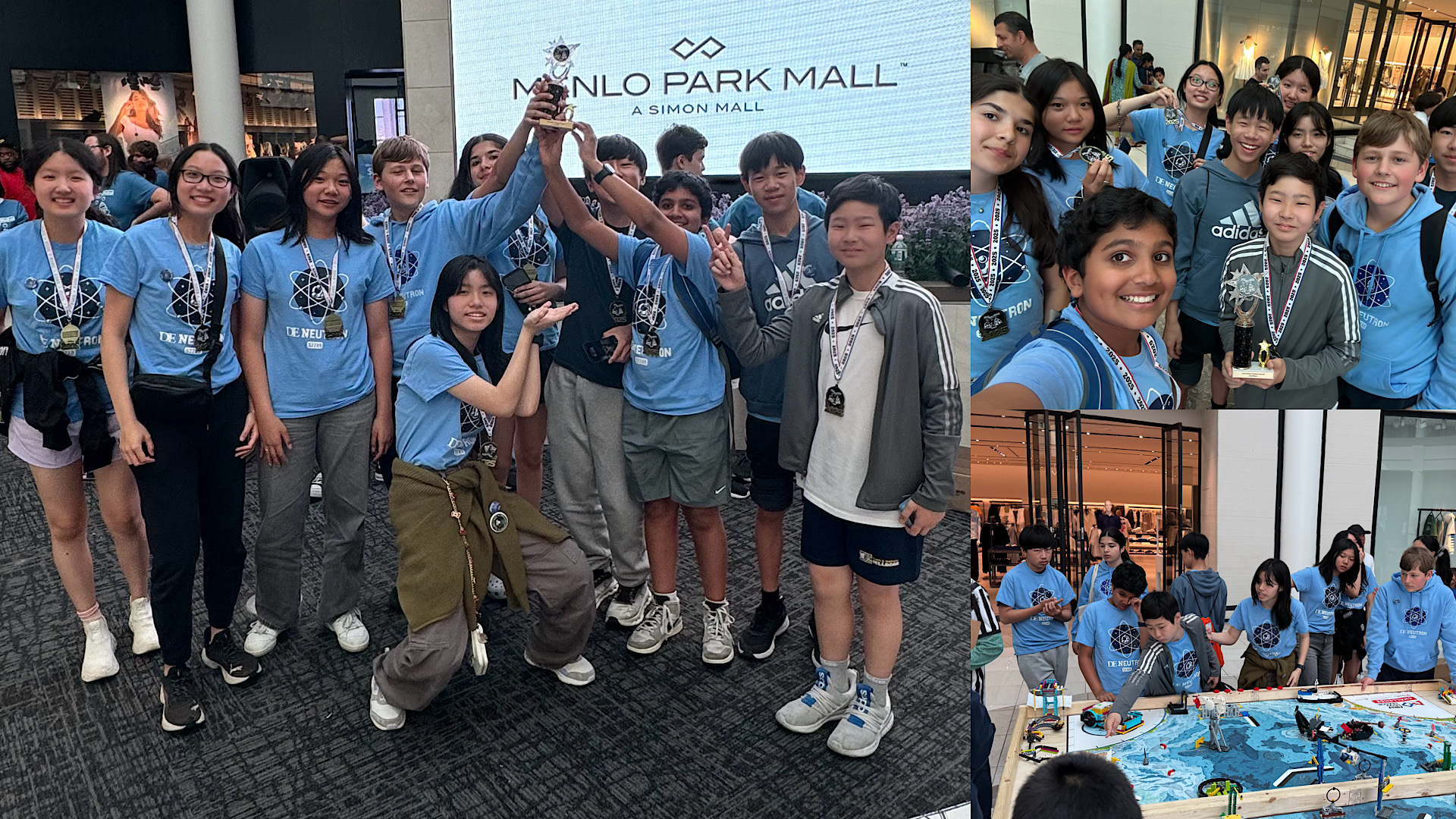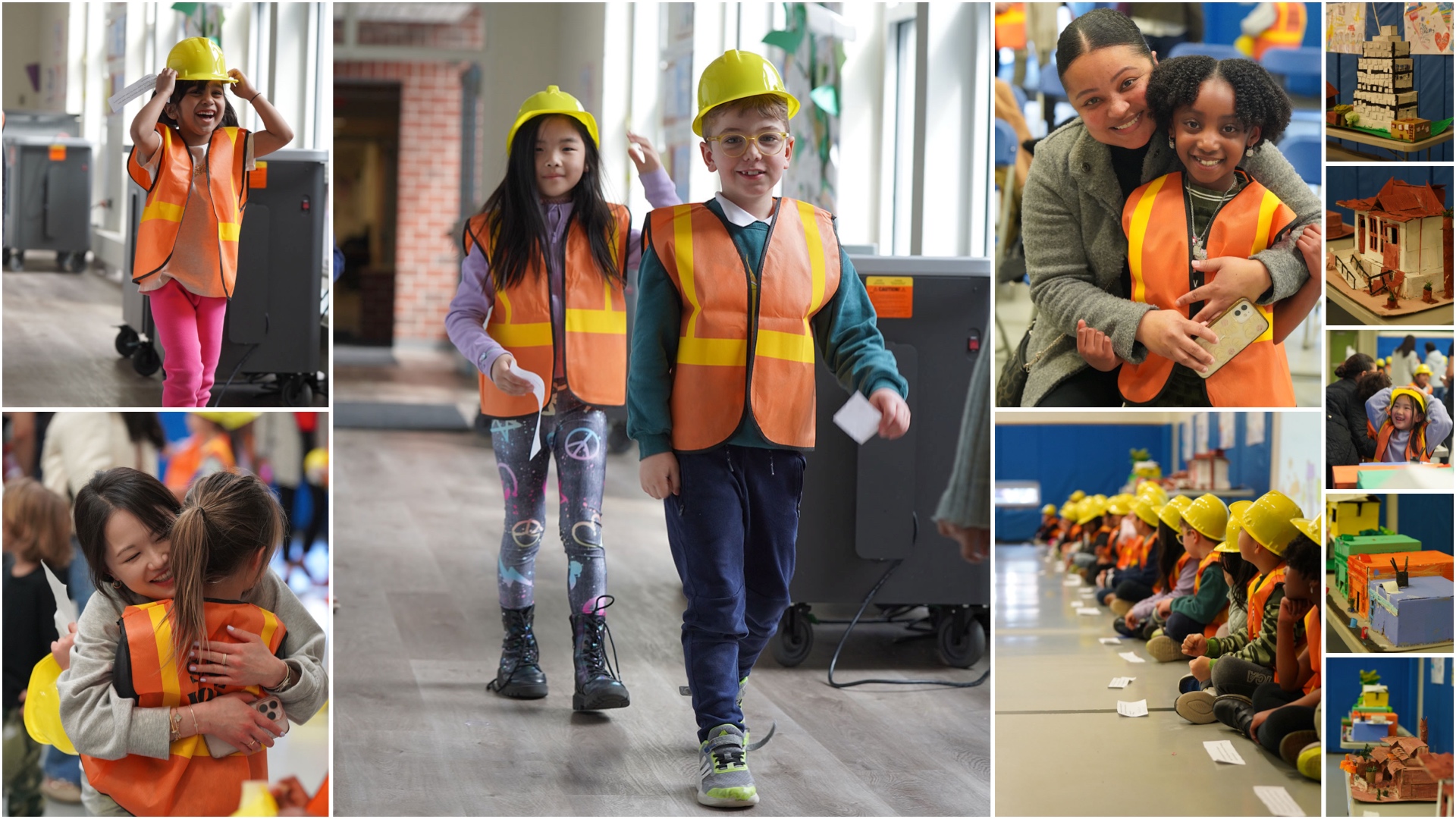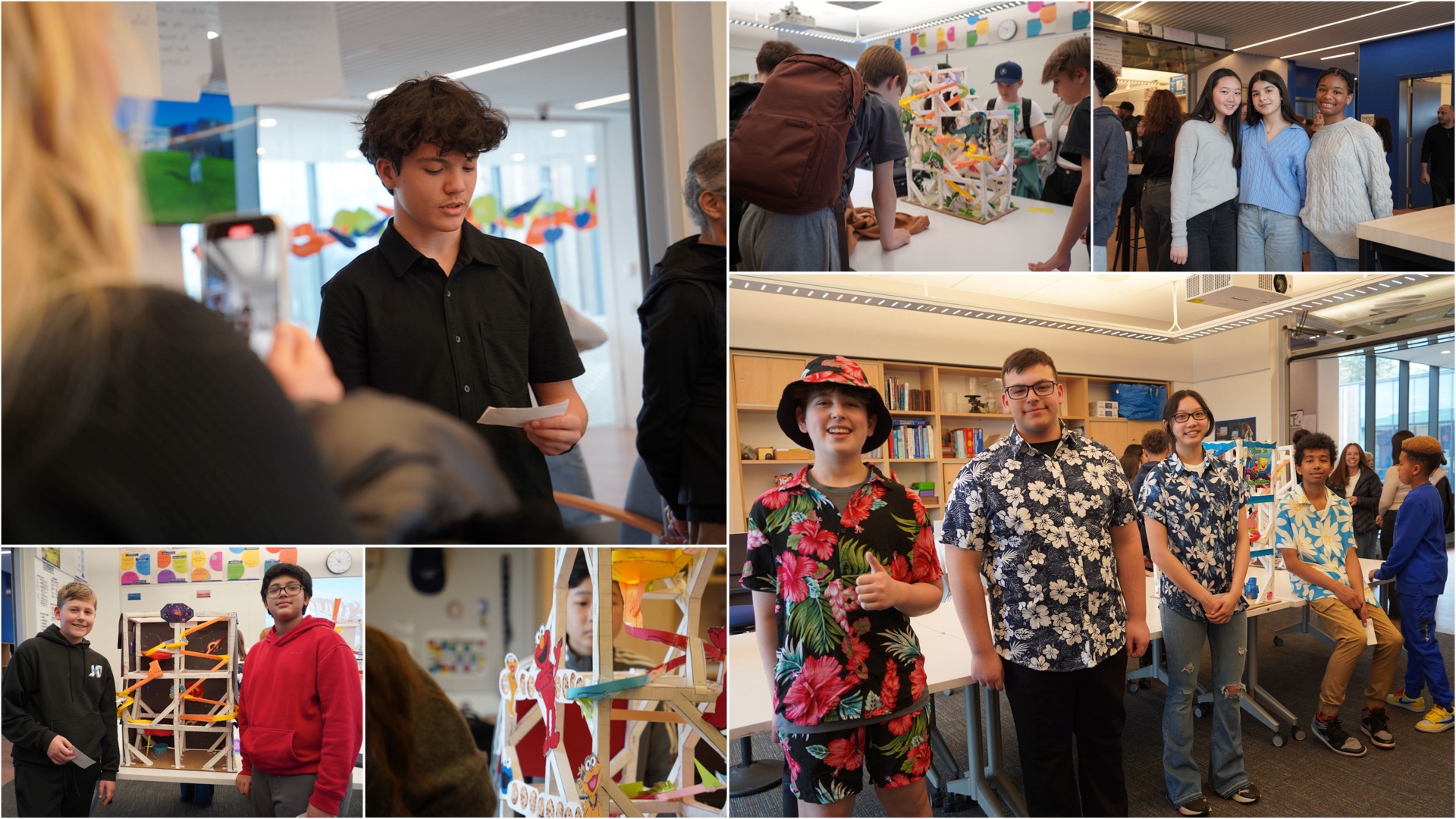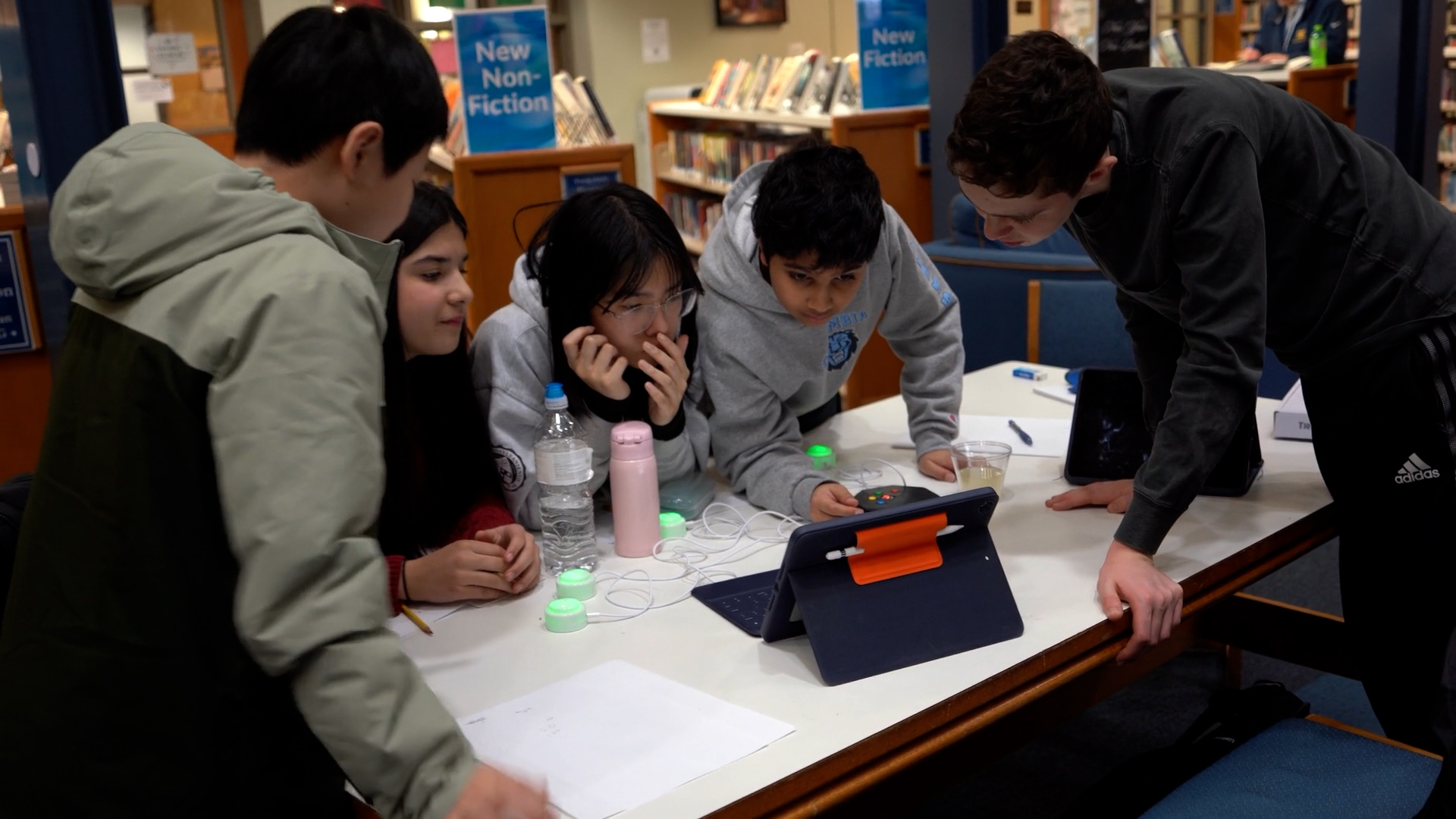Founded in 1984, Science Olympiad is the premier team STEM competition in the nation, providing “standards-based challenges” to 6,000 teams at 425 tournaments in all 50 states. Colleen Larianoff, D-E Innovation Coordinator, explains, “Science Olympiad challenges students to solve problems in STEM-related fields. There are approximately 20 events, which rotate yearly. Some require building, some require labwork, and some require master of content knowledge. For example, there is typically a vehicle-building event. Last year, the vehicle’s propulsion system had to be a mousetrap. This year, the propulsion had to involve elastic.”
Larianoff continues, “Students are challenged to go through the design process, defining the problem, designing and testing a vehicle, and going through multiple iterations. While the students build the car in advance, they do not know the target distance that the vehicle has to travel at the competition and have only a few minutes to modify their vehicle right before the challenge, so they have to truly understand the physics behind their propulsion system.”
The program’s lab event topically includes hands-on experiences. Larianoff continues, “For a “Crime Busters” lab event, students needed to learn forensics skills in advance, and then use critical thinking to apply these skills in a hands-on forensics challenge.” An example of a knowledge-based event is anatomy and physiology; each year several organ systems are highlighted and students need to study in advance and demonstrate their knowledge on a test.”
Larianoff concludes, “Our D-E ‘Student as Learner’ traits, which include creativity and collaboration, are clearly being flexed during these intense competitions; The building and lab events in particular require students to apply a set of skills to a novel situation and persevere through failure.”
The D-E Science Olympiad team ultimately achieved notable results in the Regional Invitational event at which they competed earlier this spring. The team earned 2nd Place overall while competing in the meet at NJIT, and special shoutout to the following students for their individual medals as follows:
Philip Levinsky ’27 and Selina Shen ’28 (Gold – Green Generation (environmental science));
Alexa Wanich ’28 and Selina Shen ’28 (Silver – Can’t Judge a Powder (chemistry));
Andre Valencia ’27 and Leo Gu ’27 (Bronze – Road Scholar (cartography));
Andre Valencia ’27 and Hudson Guzman ’27 (Bronze – Solar System);
Owen McBride ’28 and Lucy Meserole ’28 (Honorable Mention- (Anatomy and physiology));
Alexa Wanich ’28 and Ryan Lu ’27 (Honorable Mention – (Fast Facts (science trivia));
Jason Lee ’27 and Ryan Lu ’27 (Honorable Mention – (Meterology)); and
Sylvie Yao ’27 and Leo Gu ’27 (Honorable Mention- Roller Coaster Design)).
Kudos are owed as well to Chelsea Clarke ’28 and Chelsea Shen ’27, who competed in the event that nobody wanted, “Rocks and Minerals”, instead of their top choices, in order to benefit the team!

